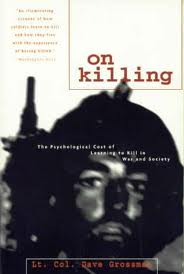 Moral Injury Is an Invisible Epidemic That Affects Millions
Moral Injury Is an Invisible Epidemic That Affects Millions
Moral Injury is a specific kind of trauma results when a person’s core principles are violated during wartime or a pandemic
from Elizabeth Svoboda in Scientific American, Sep 2022
“…What spurred the first rigorous study of moral injury, however, was the multitude of U.S. soldiers struggling after serving in wars in Vietnam, Iraq and Afghanistan. Psychologist Brett Litz of the Veterans Affairs Boston Healthcare System saw quite a few vets of these conflicts who weren’t responding well to counseling after their deployments ended. They seemed to be stuck in stagnant grief over acts they’d committed, such as killing civilians in war zones. They reminded Litz of one of his past therapists who’d seemed oddly detached, never mentally present in the room. Afterward Litz found out why. “Probably months before I went to him, he had opened his car door, and he killed a child who was just biking down the road,” Litz says. “He was as broken as can be. I witnessed firsthand what that was.”

One reason Moral Injury happens is a built-in human aversion to killing. Col. David Grossman’s book will change the way you think about humans.
In long conversations with veterans, Litz grew convinced he was witnessing a condition that was different from PTSD and depression. PTSD typically takes root when someone’s life or safety is threatened. But much of the lingering trauma Litz saw in vets had nothing to do with direct personal threat. It was related to mounting guilt and hopelessness, “the totality of the inhumanity, the lack of meaning and the participation in grotesque war things,” he says. “They were pariahs—or felt that way, at least.”
Building on Shay’s earlier work, Litz resolved to develop a working concept of moral injury so that researchers could study it in depth and figure out how best to treat it. “I thought, ‘This is going to affect our culture, and there are going to be broad impacts,’” he says. “We needed to bring science to bear. We needed to define the terms.”
To that end, Litz and his colleagues published a comprehensive paper on moral injury in 2009, outlining common moral struggles veterans were facing and proposing a treatment approach that involved making personally meaningful reparations for harm done. He noted, too, that not all “potentially morally injurious events” cause moral injury. If you kill someone, and you feel totally justified in having done so, you may not experience moral injury at all. Moral injury tends to turn up when you have a vision of the world as fundamentally fair and good and something you’ve done or witnessed destroys that vision…”











